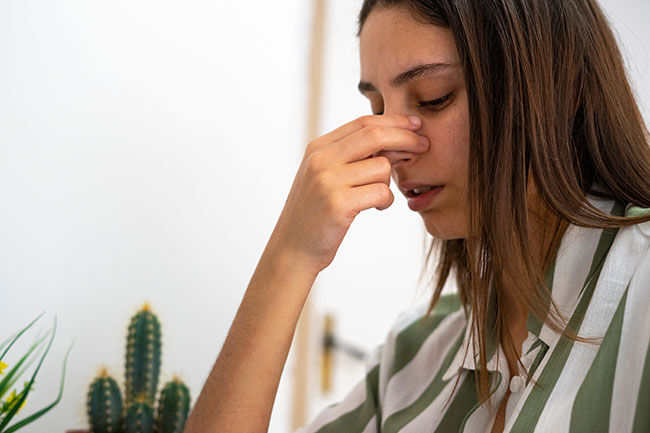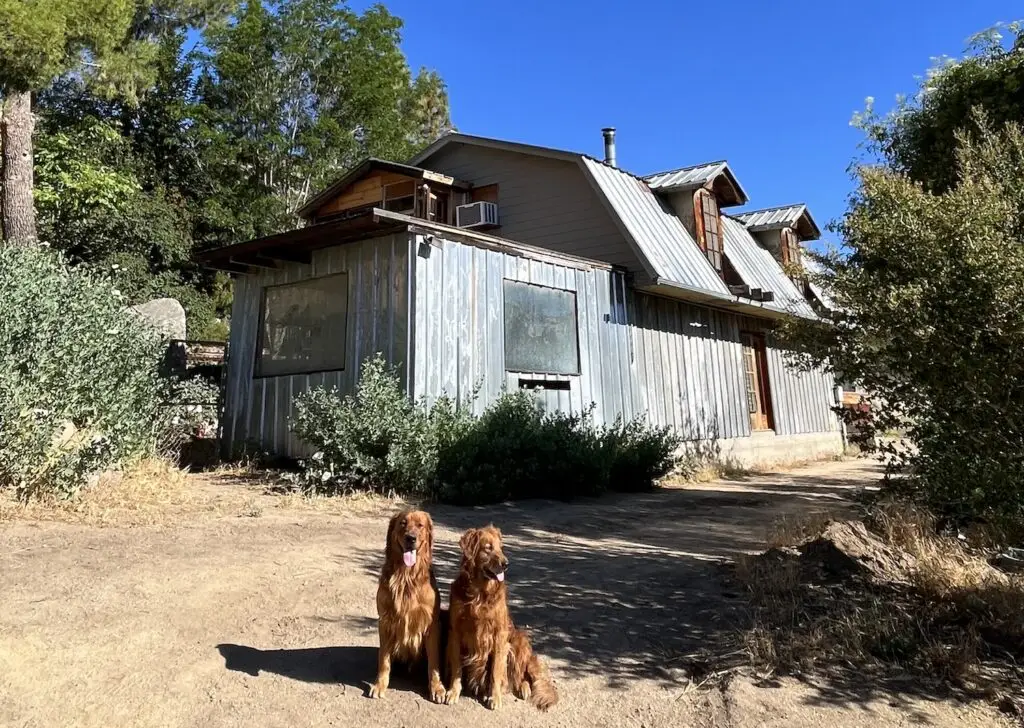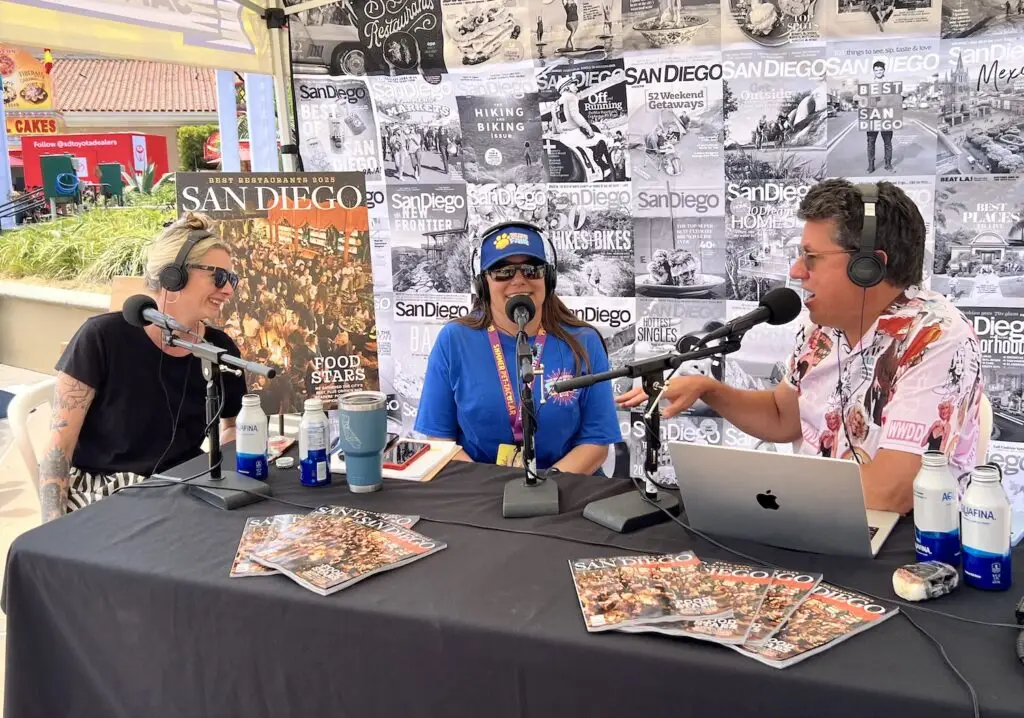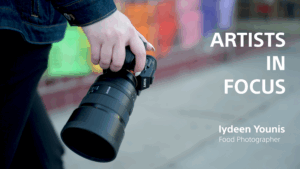
Ways to stop a nose bleed
This post contains affiliate links to products and services. We may receive compensation when you click on links.
Nosebleeds are very common and rarely serious, but that doesn’t make them any less of a nuisance. They’re messy, concerning, and depending on the situation, they could also be embarrassing. So, what are the best ways to stop them and is there anything you can do to prevent them?
5 Ways to Stop a Nosebleed
The first method on this list is probably the only one you’ll need. It’s effective, free, and you don’t need any medications or paraphernalia. But just in case it doesn’t work or you need something quicker, we have included some alternative ways to stop a nosebleed.
1. Pinch and Lean
You need to keep your nostrils closed for at least 10 minutes to promote blood clotting. You should also stay upright and remain calm.
Begin by pinching the soft part of your nose, just below the bridge. Sit upright and lean forward, making sure the blood doesn’t run down your throat.
Now you just wait. Resist the temptation to check if the bleeding has stopped and make sure your nostrils are closed for at least 10 minutes.
If the bleeding persists, repeat the steps above or try one of the options below. In case of heavy bleeding that doesn’t stop, seek medical attention.
2. Use a Cold Compress
Applying a cold compress to the bridge of the nose will restrict the blood vessels and limit the flow. Grab an ice pack or some frozen peas and press it against the bridge of your nose.
3. Try a Decongestant Nasal Spray
Decongestant nasal sprays work by constricting the blood vessels, much like a cold compress. Oxymetazoline (Afrin) is often recommended for this purpose and can be particularly effective with stubborn bleeds.
Avoid using these excessively, though. Sprays can irritate the nasal cavity and may worsen the condition in the long term.
4. Use Nampons
Nampons are an ingenious nasal tampon that stop nosebleeds quickly and effectively and should be in the medicine cabinet of every chronic sufferer. They are little absorbent sticks that contain a clotting agent, and they are recommended by many healthcare professionals.
Nampons absorb the blood and expand, forming a non-stick plug that hastens clotting and can be removed when the bleeding stops.
It’s never recommended to stuff your nose with tissue when you have a nosebleed, as doing so could irritate the lining, stick in the wound, and make the issue worse. But Nampons are specifically designed for this purpose and are perfectly safe for home use.
5. Stay Calm
Nosebleeds are rarely serious and usually have perfectly innocent causes, such as dry air and nose-picking. There’s no need to panic. But that’s easier said than done, and if you don’t have frequent nosebleeds and have been raised on Hollywood notions that nosebleeds are indicative of serious illness (or psychic powers), you’re going to panic.
That panic could worsen the issue and prolong the bleeding. Although it’s not easy, it’s important to stay calm. Breathe deeply, sit still, and remember that it will pass.
5 Ways to Prevent Nosebleeds
In the word of Benjamin Franklin, “an ounce of prevention is better than a pound of cure”. So, what’s the ounce of prevention for nosebleeds?
1. Keep Your Nose Moist and Protected
One of the most common causes of nosebleeds is dry air. Whether you’re baking in the desert heat or constantly inhaling heated indoor air, it can take a toll on your sinuses. The tiny blood vessels inside of your nose are protected by a delicate lining. If that lining becomes dry and cracked, it will expose the blood vessels underneath.
It’s why you might experience more nosebleeds during the winter (when the thermostat is high) or when in states like Nevada and Arizona.
A saline nasal spray can protect against dryness, keeping your nose moist and the lining protected. A little dab of petroleum jelly helps too. Of course, you can also purchase a humidifier or just avoid overly hot and dry air.
2. Stop Picking
Nose picking, like dry air, is a common cause of nosebleeds. It’s tempting, but keep those fingers away, as all it takes is a little nick and the blood vessels will rupture.
Incidentally, this is one of the reasons why nosebleeds are more common in the very young and very old. The former don’t discriminate when it comes to noses—they’ll stick anything up there. As for the latter, the fingernails get thicker and more brittle with age, making them harder to manicure.
Clean your nose by inhaling some steam and blowing your nose. It’s incredibly effective and there is no risk of cuts and scrapes.
3. Blow Your Nose Gently
Speaking of blowing your nose, try to be gentle to avoid putting your nasal blood vessels under too much pressure. If you suffer from frequent nosebleeds resulting from allergies, colds, and flu, it could be that you’re rubbing too much and blowing too hard. It’s a lot of strain for the little blood vessels to take.
4. Avoid Chemical Irritants
Do you remember the last time you inhaled harsh smoke from a fire or a freshly lit cigarette? What about vapors from cleaning products and industrial chemicals? It gets up your nose and leaves you reeling, and as you might expect, it can also damage the nasal lining.
Nosebleeds that result from chemical irritants can cause both anterior nosebleeds (front of the nose) and posterior nosebleeds (back of the nose). The latter is more serious, but both are treatable by following the solutions outlined above.
5. Avoid Excessive Use of Nasal Sprays
As noted previously, decongestant nasal sprays could help to stop a nosebleed, but they should be used in moderation. The same is true for steroidal nasal sprays, as they can dehydrate the nasal lining.
What Not to Do if You Have a Nosebleed
One of the worst things you can do if you have a nosebleed is tilt your head back. It might save your shirt, but it won’t do your throat, stomach, or lungs any favors—that blood has to go somewhere.
Don’t lie down, pick/blow your nose, or lift heavy objects. That also applies after the bleeding has stopped, as you could dislodge a blood clot and restart the flow. Bathing may also restart the bleeding, as steam dilates the vessels and promotes blood flow.
FAQs
What triggers a nosebleed?
Most nosebleeds occur as a result of overly hot and dry air, as well as trauma (resulting from hits to the nose and nose picking).
What can I put up my nose to stop a nosebleed?
Don’t use cotton balls or tissues. They can stick to the wound and irritate the nasal lining, making it worse. If you want a quick way to stop the bleeding, pick up a pack of Nampons. They won’t stick to the wound or fall apart and they contain a blood clotting agent.
How do you treat nosebleeds naturally?
The best and most effective way is to stay calm, sit upright, pinch, and wait. Refrain from checking and give it at least 10 minutes. That should suffice to stop the nose bleeding.
What stops nosebleeds fast?
As above, Nampons can help and Afrin nasal spray may achieve a similar result. But there’s no need to rush! As noted above, it only takes 10 to 15 minutes to naturally stop a nosebleed.
What is the medical treatment for frequent nosebleeds?
If there are no lifestyle/environmental changes that can reduce nosebleed frequency, your doctor may recommend cauterization, which seals the blood vessels, stops them from bleeding, and promotes scar tissue development to prevent future bleeds. Ligation can also be used to tie off the arteries and achieve the same effect.
Summary: The Best Ways to Stop a Nosebleed
Nosebleeds are common and fairly easy to treat.
Just remember:
- Stay calm.
- Sit upright.
- Pinch the nose and lean forward.
- Wait for 10 minutes.
- Try Afrin or Nampons if that fails.
Refrain from blowing, picking, rubbing, and steaming the nose after a bleed.
Finally, while most nosebleeds are harmless, they can cause complications in the presence of blood clotting disorders and blood thinning medications, as the body is unable to create blood clots.
PARTNER CONTENT
High blood pressure is also linked with frequent nosebleeds, although it’s not a cause and the link isn’t fully understood. Still, if you use blood thinners or have high blood pressure/a blood clotting disorder, seek medical attention in case of frequent heavy nosebleeds.
Related Content
- What Causes Nosebleeds?
- 5 Ways to Stop a Nosebleed
- How to Make a Child’s First Aid Kit
- When to Worry about a Nosebleed
- What You Need for Allergy Season



















